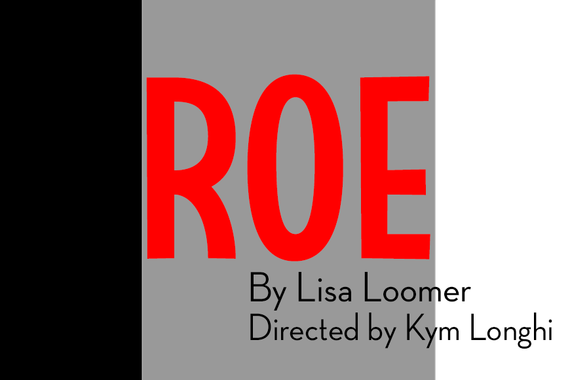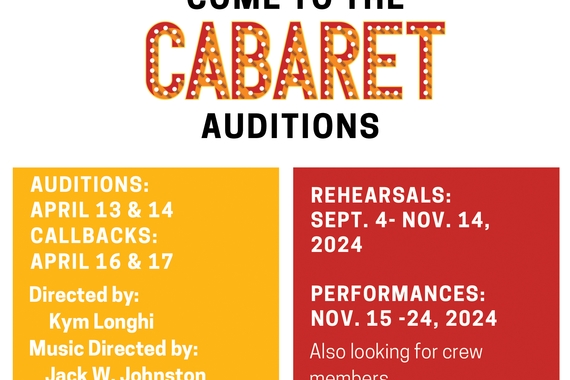Much Ado About Learning: Royal Shakespeare Company Residency on Campus
“We’re excited about the opportunity to gain insight into the workings of one of the largest, most prominent, most artistically successful theatre institutions in the world.”
From April 23 to 26, the Department of Theatre Arts & Dance (UMTAD) hosted a residency that kicks off an exciting new partnership. The department welcomed world-renowned Royal Shakespeare Company (RSC) for three days of workshops and panels facilitated by the RSC’s practitioners, directors, and actors. Many events were open to the public, with some workshops set aside for students in the BFA Actor Training Program.
A Perfect Partnership
Despite being based an ocean apart, UMTAD and RSC share a similar teaching approach. “Our own approach to Shakespeare is a practical one,” says Aaron Todd Douglas, director of the BFA program. “We are finding that the RSC’s approach is even more practical in that they do not place the source material on a pedestal, or handle it with undue reverence. We are constantly reminded that Shakespeare is not intended for royalty, but for the people.”
Fiona Ingram, Head of Learning at the RSC, explains that they “approach Shakespeare as a fresh play. We talk about Shakespeare as if the ink is still wet on the page, so he's just written it. So then what are we going to do with it? How are we going to work with it? There's academic rigor, but also the ability to interpret and to constantly change.” She concludes that the University’s “philosophy and practice absolutely align” with the work they do. This alignment in educational values has allowed the partnership to flourish.
In fact, the blend of backgrounds and cultural experiences has been a strength of the program. The RSC brings decades of experience and the unique way in which they “look at Shakespeare within the UK, within our heritage.” For the residency practitioners, the new perspectives provided by students enhance their practice, too. Ingram says that during rehearsal sessions, “students will push back and challenge and make us think and become better artists.”
The Benefits of Studying Shakespeare
But why, over four hundred years after they were written, are we still so drawn to the plays of William Shakespeare? The RSC team provides many reasons, from their “cracking storylines” to their thoughtful explorations of humanity. And, crucially, Shakespeare serves as an excellent tool for theatre practitioners. “With young people and students we work with in schools,” Ingram says, “There’s often the thought, ‘If I can work with Shakespeare, I can work with anything.’” Senior Learning Partnerships Manager Victoria Cholmondeley agrees, adding that “once you've tackled the mantle of Shakespeare, you can tackle anything.”
The complexity of the language is an educational gift, not a hindrance, as it provides lessons at every turn. Within a short span of time, students added an impressive range of lessons to their arsenal, working on rhythm, physicality, engaging with the audience, analyzing text, and more. Participants appreciated these new perspectives. BFA student Rayyan Khan says, “In just two days of workshops, I have gained palpable confidence in working with these texts. I have a better understanding of some of the tools at my disposal when working Shakespeare and look forward to putting them into practice.” He is also excited by how these tools can be applied to texts by other playwrights.
Setting Foundations for Future Collaborations
The residency serves as one step in a cycle of exchanging ideas and expertise; each September, theatre students from the University visit Stratford, Shakespeare’s birthplace and the home of the RSC, along with London, where the RSC frequently performs. The first of these visits took place in 2022, and Cholmondeley and Ingram enjoyed reuniting with students who had been on that trip. Now they’re hoping that sophomores and juniors who benefited from these sessions will join them in the United Kingdom this upcoming fall. Ingram looks forward to “going on a journey with these students, and working with them again in Stratford.” This continuity allows instructors to guide their development for an extended time while “joining closer to the students and faculty.”
This partnership serves as one piece of the BFA program’s timely expansion. Douglas explains that, in a theatre world facing fluctuating box office returns and uncertain financial landscapes, the “developmental partnership with the Royal Shakespeare Company represents the department’s flexibility and resourcefulness. Embracing new artistic collaborations will help prepare our students to meet these exigent challenges as they enter the field.” The partnership is also strengthening connections between the BFA program and the local theatre community. “Our colleagues at Children’s Theatre Company, Great River Shakespeare Festival, Augsburg University, and others have expressed an interest in further building the community that was established during the Teaching Artist Pedagogy Workshop,” Douglas says.
UMTAD plans to continue hosting the RSC residency every two years. There is plenty to look forward to as the BFA program continues to provide valuable instruction, lend new insights, build community, and expand study abroad opportunities. Ingram is excited about the partnership and, with the RSC also entering a period of change as two new co-artistic directors arrive in June, she concludes that “it's a great time to start new partnerships and see where that journey takes both organizations.”

